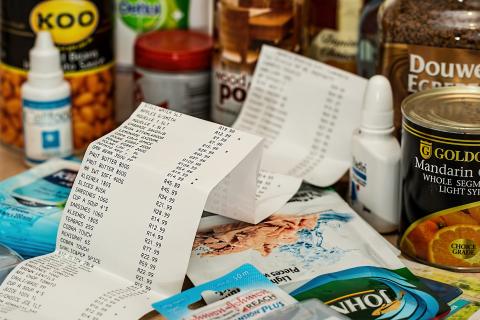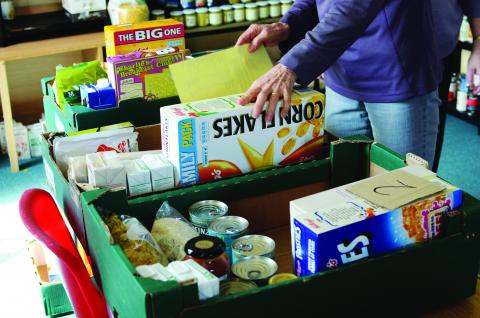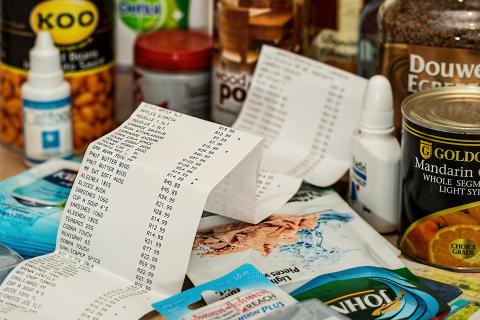26 June 2023
Food Prices Tracker: June 2023
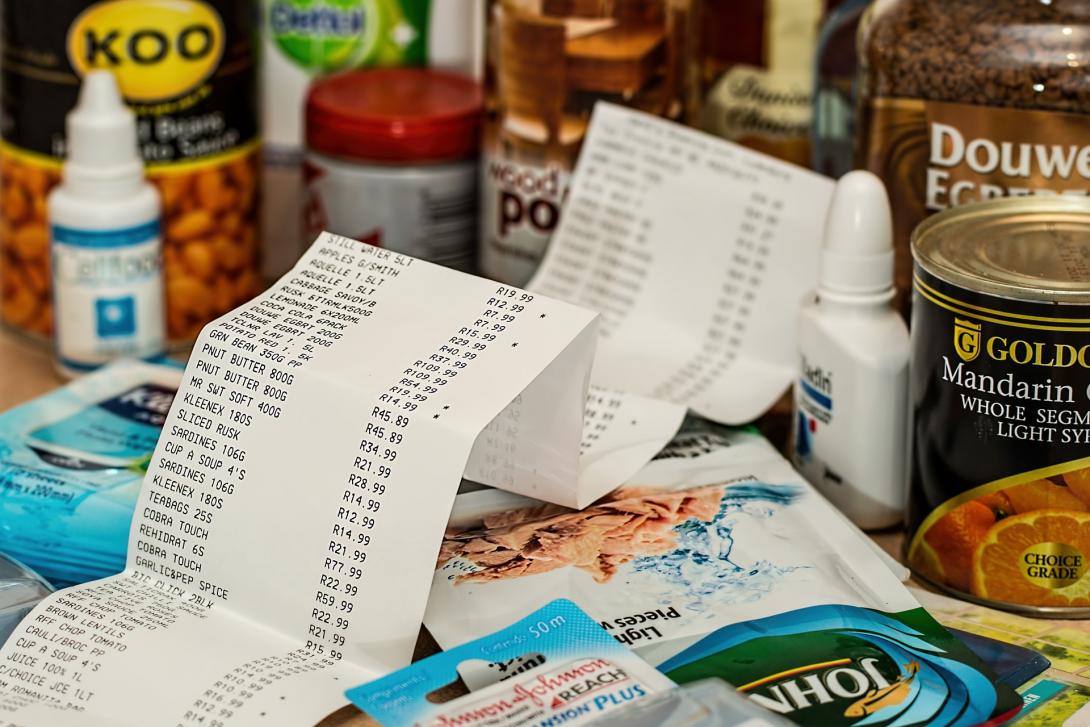
by Alice English
Food price inflation has fallen but the cost of food remains high.
New Government data published this week shows food price inflation has fallen slightly this month from 19.1% to 18.4%. While decreasing food inflation indicates a positive development and a slowing of price increase, the cost of food remains high.
Global food commodity prices have been falling since mid-2022 but remain 33% higher compared with pre-pandemic levels. However, decreasing prices have not yet filtered through to UK retail and the UK is lagging behind many other countries; UK food price inflation was among the highest across G7 economies in March, second only to Germany.
UN officials warn further inflation is likely due to dam disaster in Ukraine.
A fresh tide of global food inflation is also likely to result from the devastating destruction of the Nova Kakhovka dam in southern Ukraine earlier this month, which resulted in thousands of people being evacuated, as well a large amount of agricultural land being flooded. Up to 80% of Ukrainian vegetables are grown in the Kherson Oblast region and the flooding will have major long-term effects on fruit & vegetable production. One of the main disruptive outcomes is on farming irrigation systems – the agriculture minister said that 1.5 million hectares of agricultural land in Ukraine's south will face problems and three to seven years will be needed to renew irrigation. Global wheat and corn prices soared in the hours following the incident and UN officials have warned that it would have an impact on food security and therefore global food prices.
Why is inflation still particularly high in the UK?
However, while the Government frequently cite that the high rates of food price inflation are the result of global factors – such as the war in the Ukraine, suppliers struggling to respond to rebounding demand following Covid-19 and climate-related weather events in Europe and North Africa – the UK’s particularly high inflation rates indicate that domestic factors are also playing a part. Brexit food trade barriers coupled with the UK’s heavy reliance on imports has certainly had an impact; the price of imported food materials has been rising at twice the rate of domestic food while lower price increases were experienced in countries like Italy and Spain that produce more of their own food. The BRC and the food and logistics industry have warned that further inflation and supply chain disruption is likely due to an incoming of post-Brexit border controls to be introduced in January. In addition, the Competition and Markets Authority (CMA) which last month opened an investigation into retail competition and food prices, has put a stop to the use of land agreements which prevent rival stores from opening nearby, owing to concern that they reduce consumer choice and access to cheaper prices.
With food prices predicted to remain high for some time, the Government is yet to announce robust measures to curb food price rises or support for those on low incomes struggling to afford basic essentials. Rishi Sunak has reportedly back-pedalled on plans to ask supermarkets to impose a voluntary price cap on certain basic goods due to backlash from supermarket bosses and the recent decision to delay restrictions on multibuy and BOGOF offers on HFSS foods is likely to increase reliance on unhealthy foods as the most affordable option for many low-income families. A longer-term strategy for protecting the UK against food price volatility is also not yet high on the agenda.
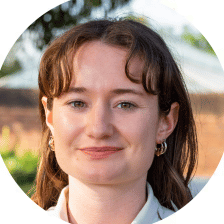
Alice joined the Food Foundation in January 2022. She has completed an MSc in Global Environmental Politics and Policy, focusing her research on food systems, with her final project investigating the barriers preventing the widespread adoption of Agroecology.
She has previously worked and volunteered at a range of environmental organisations, such as Greenhouse PR and the Climate Coalition, spent time working on organic farms and taken part in food systems research. She is particularly passionate about creating sustainable and fair food and farming systems.

Shona joined The Food Foundation as a Project Officer in 2019 and has worked on research, policy and advocacy across a range of projects over that time including leading our food insecurity surveys and flagship annual Broken Plate reports. She now works across the charity's policy portfolio including our children's food campaigns, food insecurity and food environments. She is a Registered Associate Nutritionist with a background in clinical nutrition who worked in dietetic departments in NHS hospitals before joining The Food Foundation.

Indu joined The Food Foundation in 2019 as part of the Rank Foundation’s Time to Shine scheme, moving into a Project Officer role in 2020. She works on the Peas Please and Plating up Progress projects. Prior to joining The Food Foundation, Indu completed a MSc in Public Health and a BSc in Human Nutrition. She is interested in reducing health inequalities, children’s health and wellbeing, and sustainable and nutritious food system/diets. Indu is also a lover of veg, having recently taken up urban gardening.
